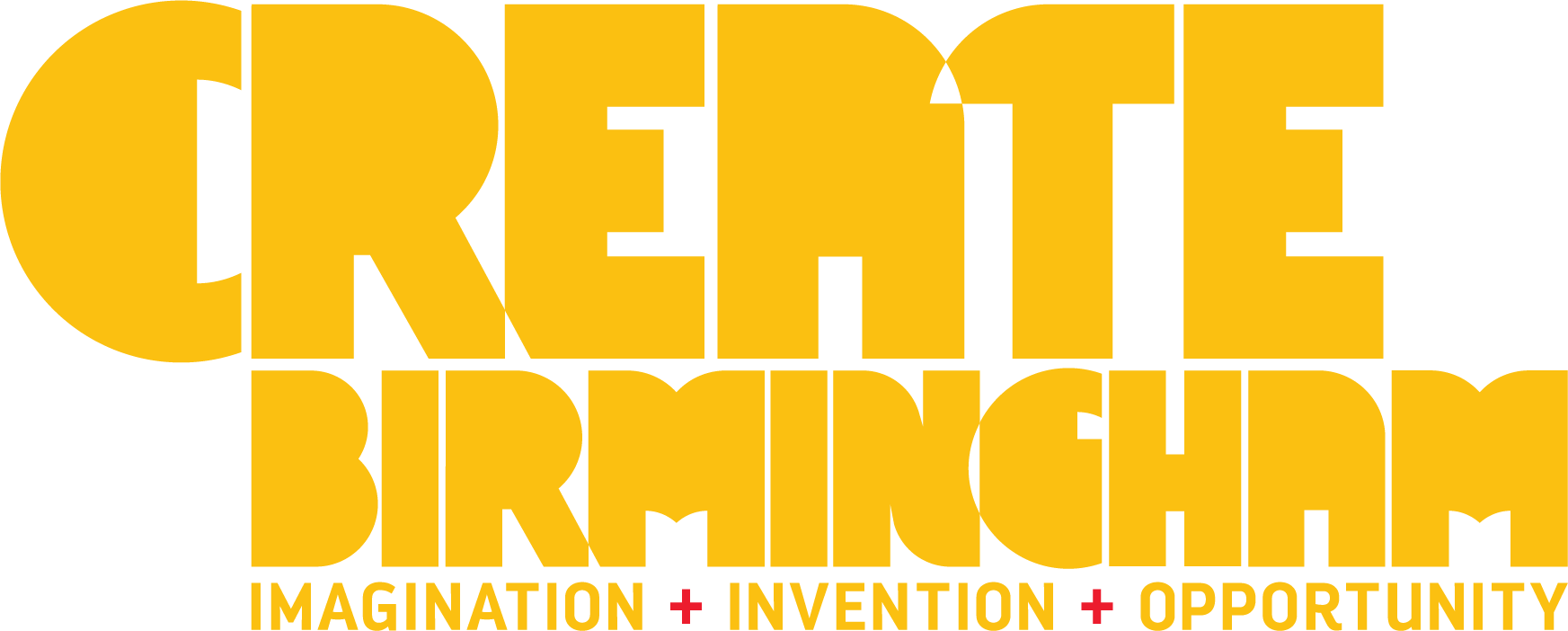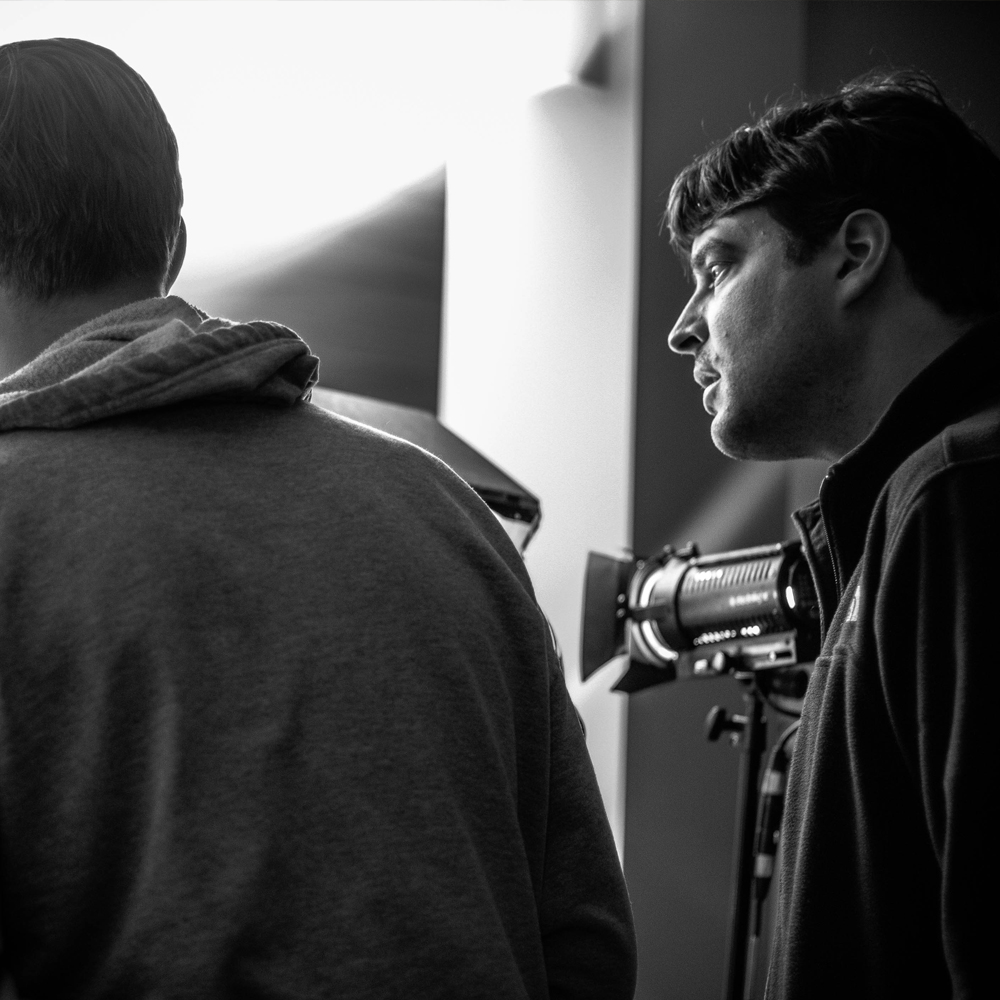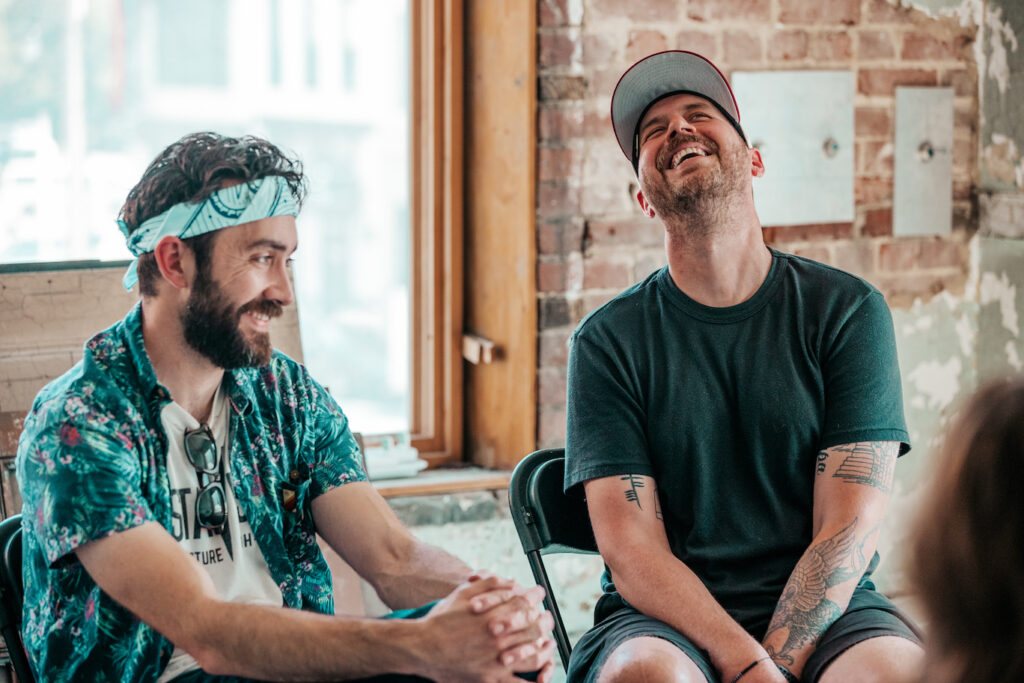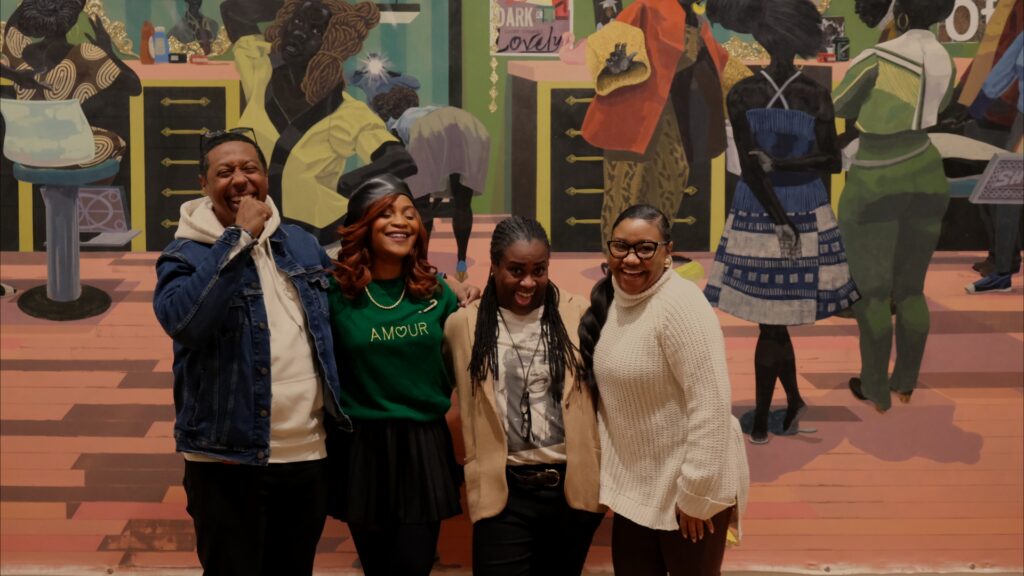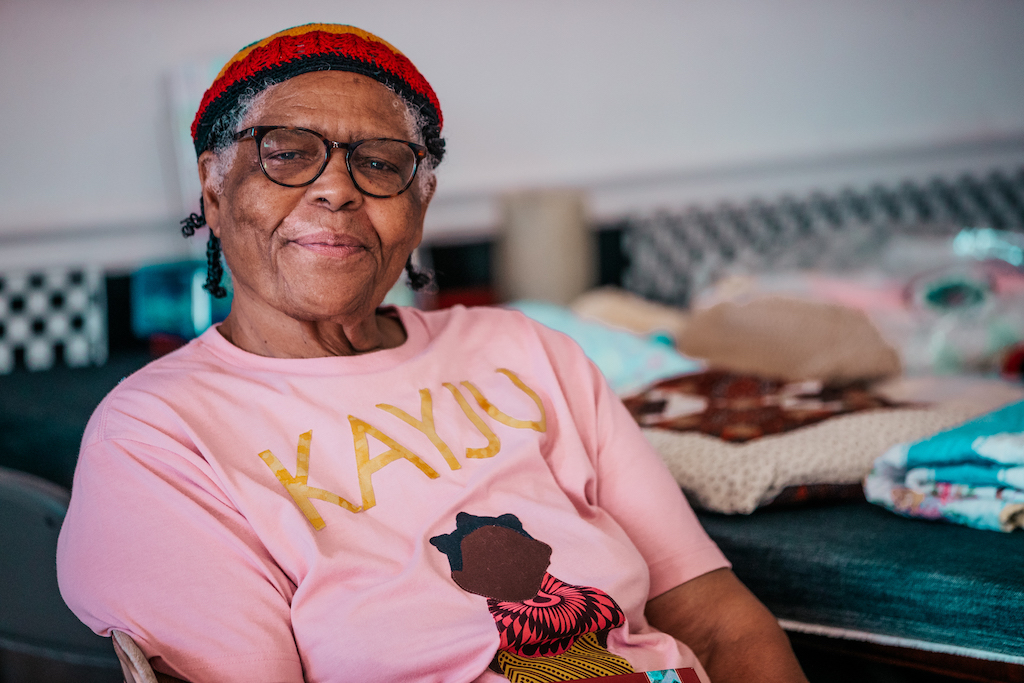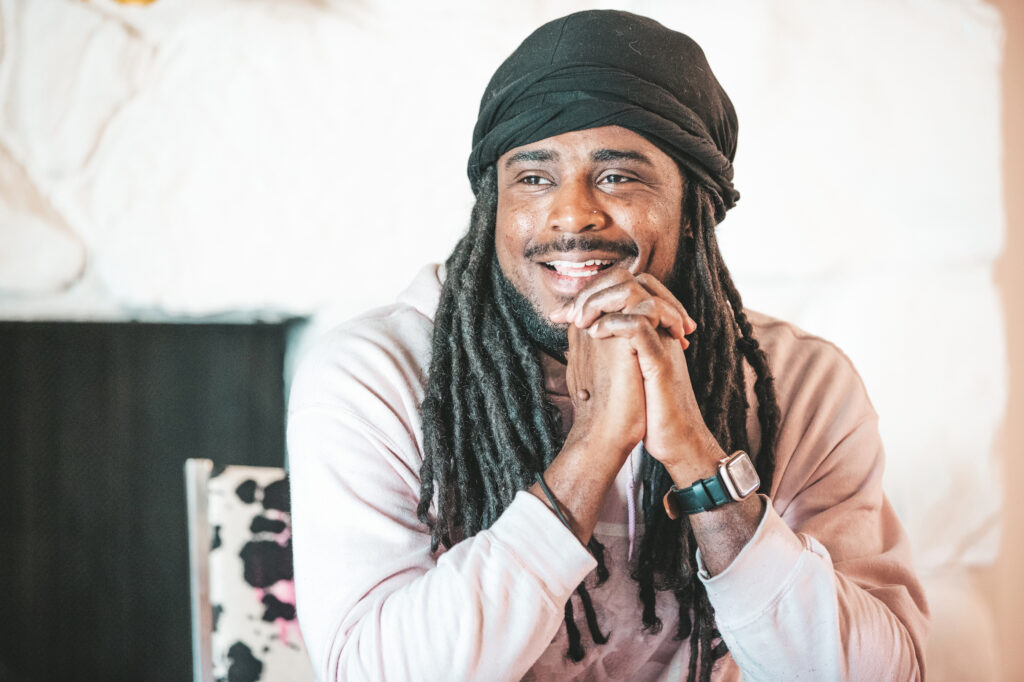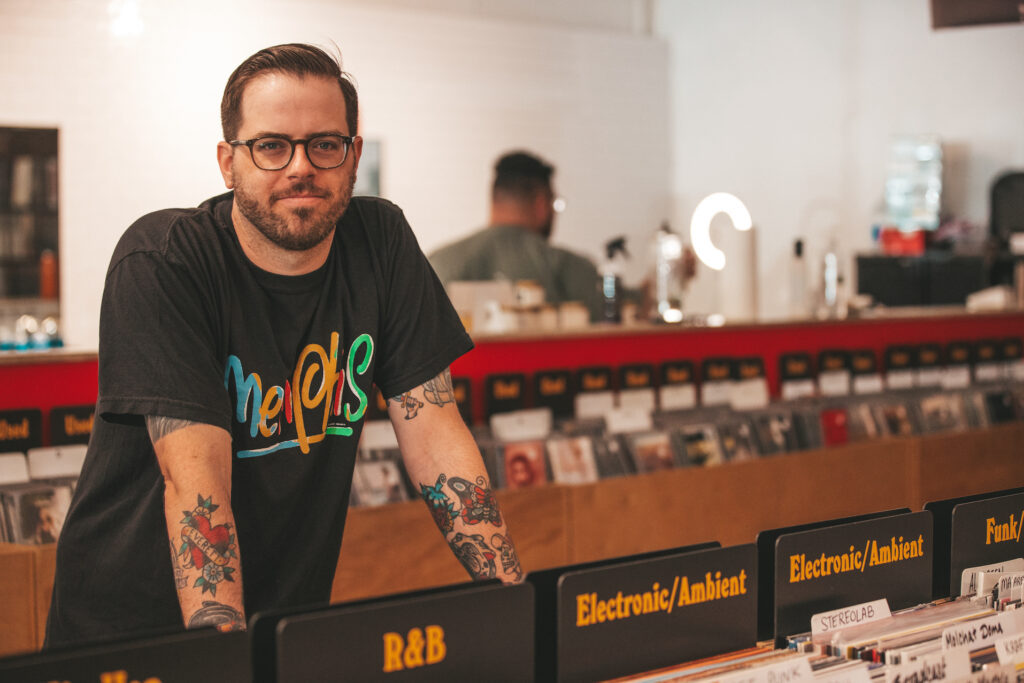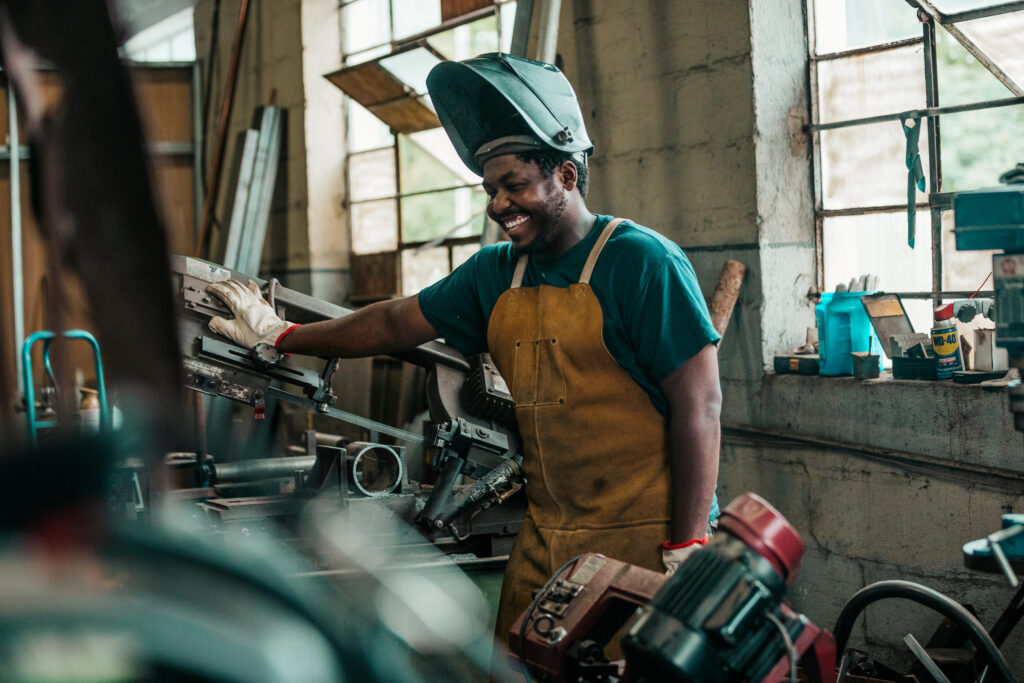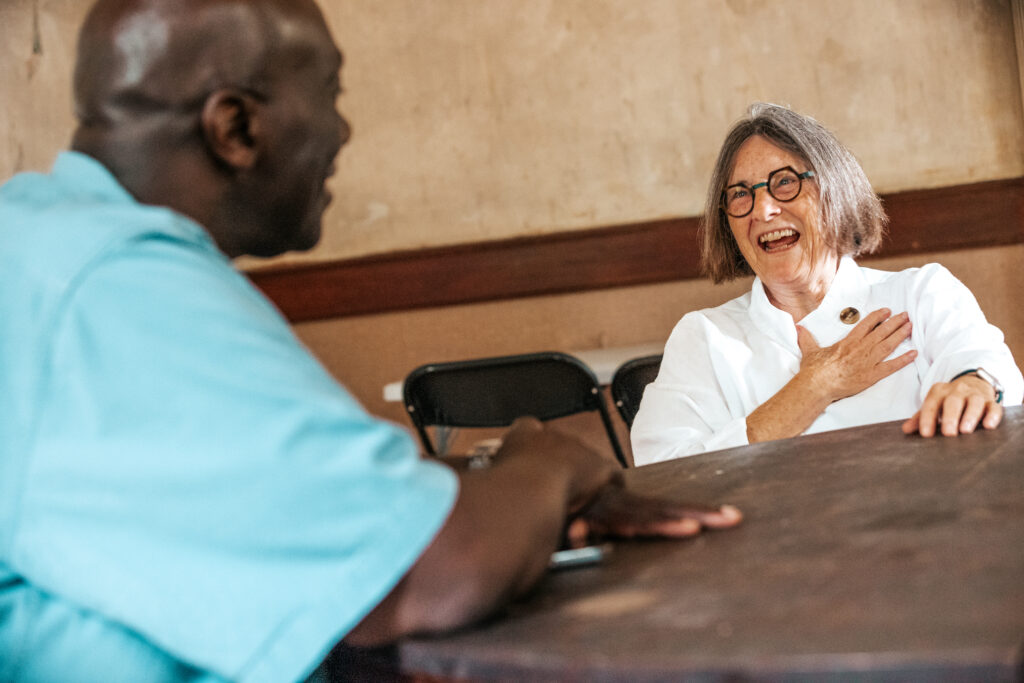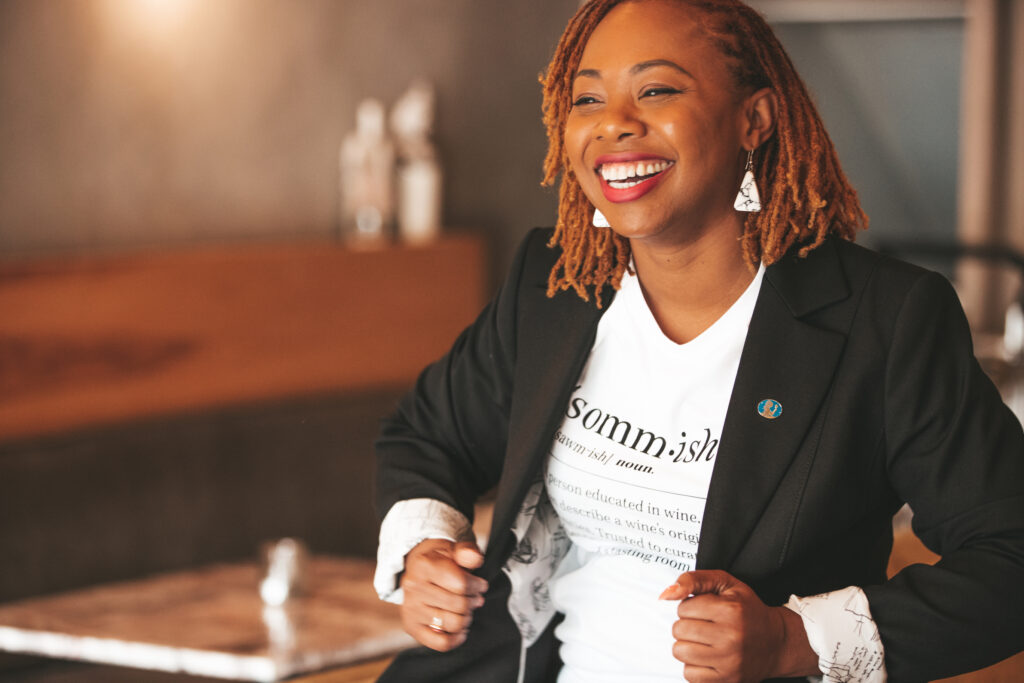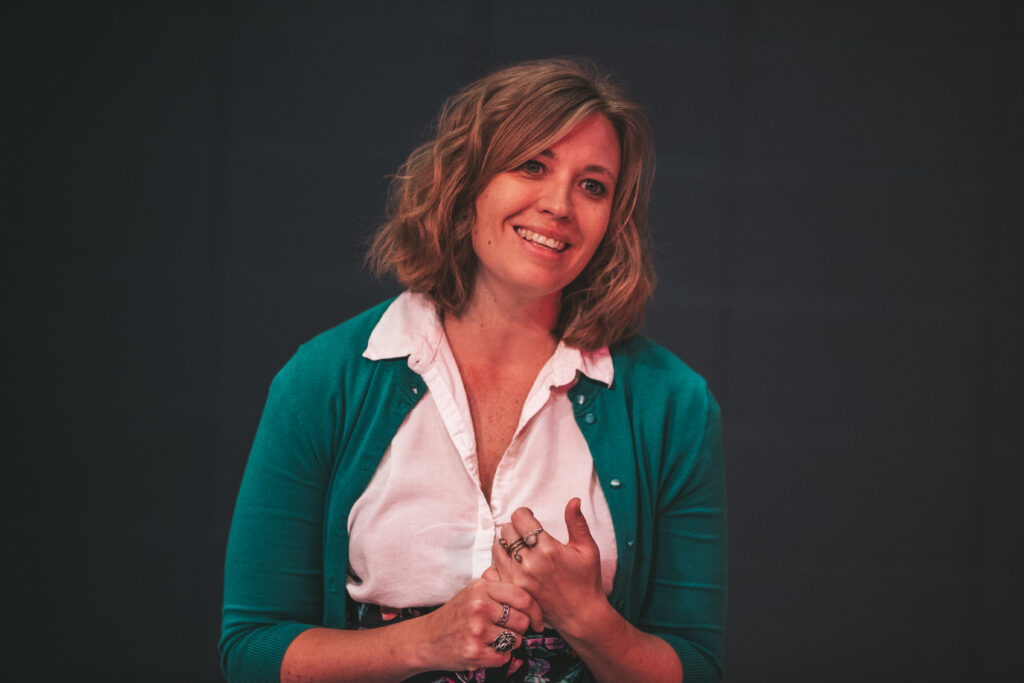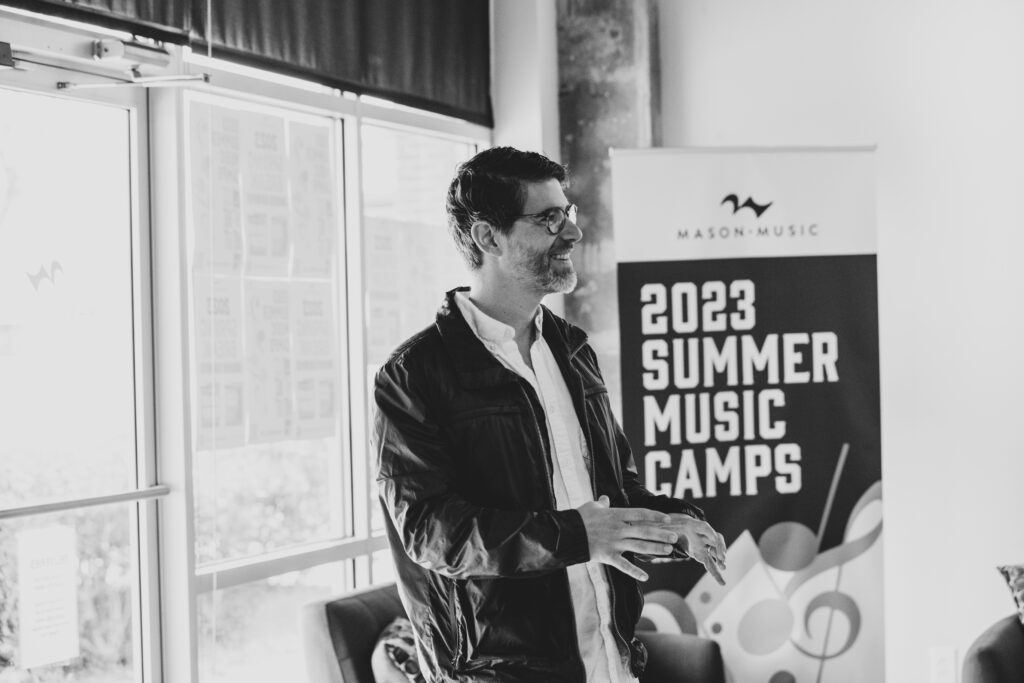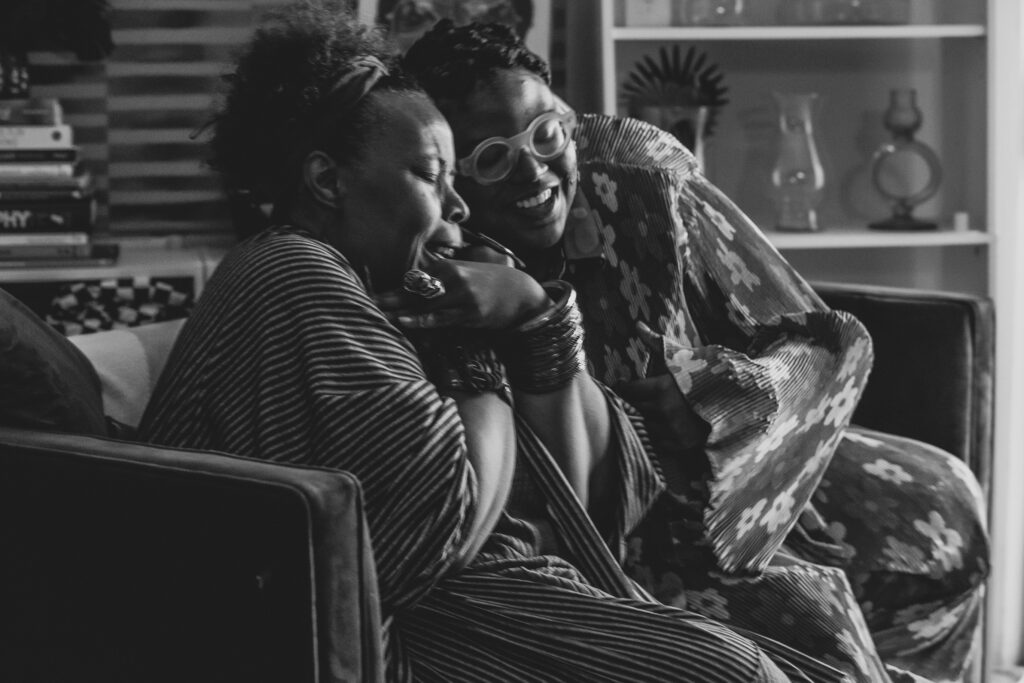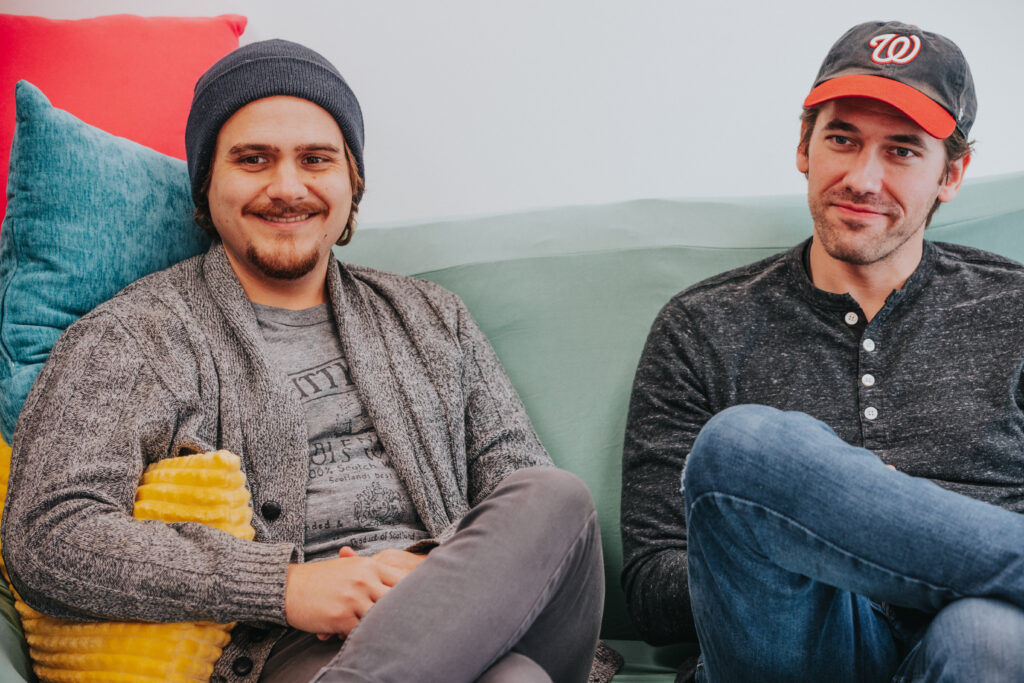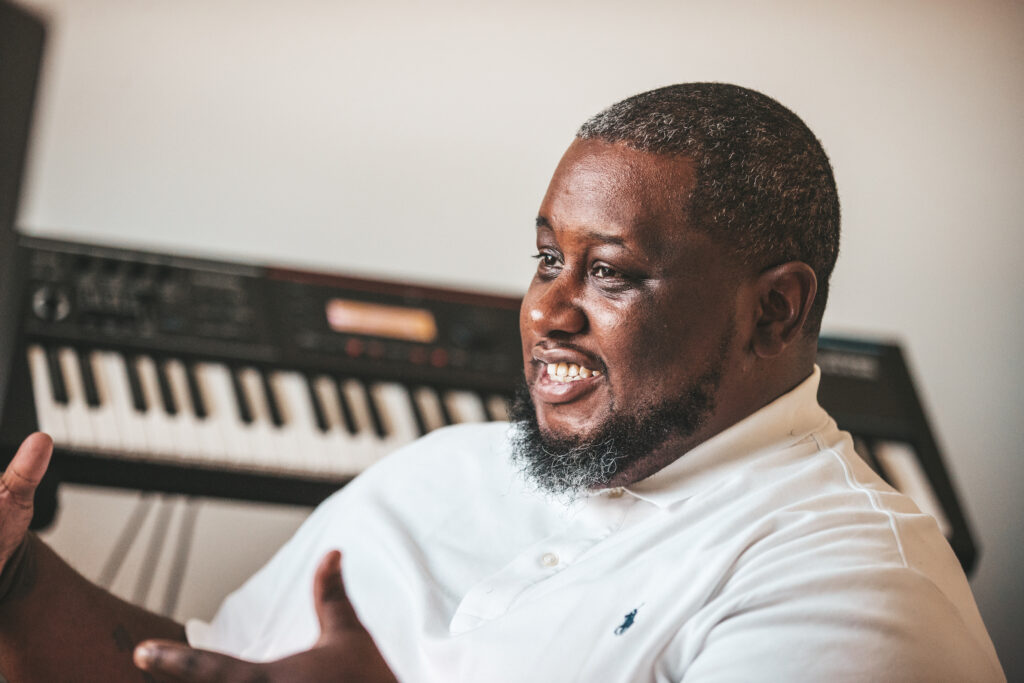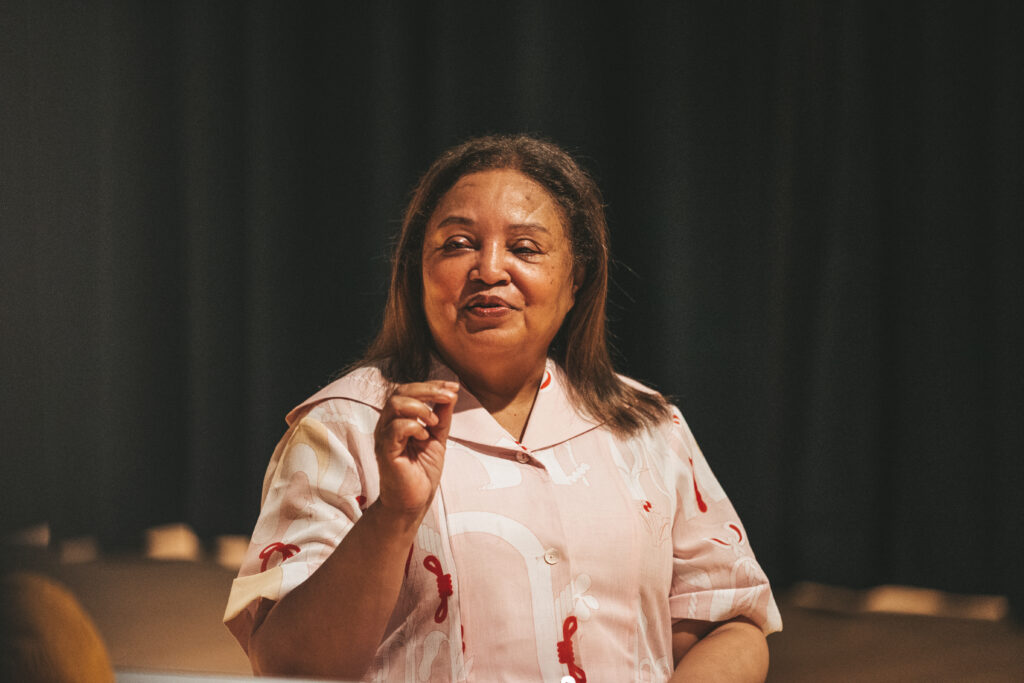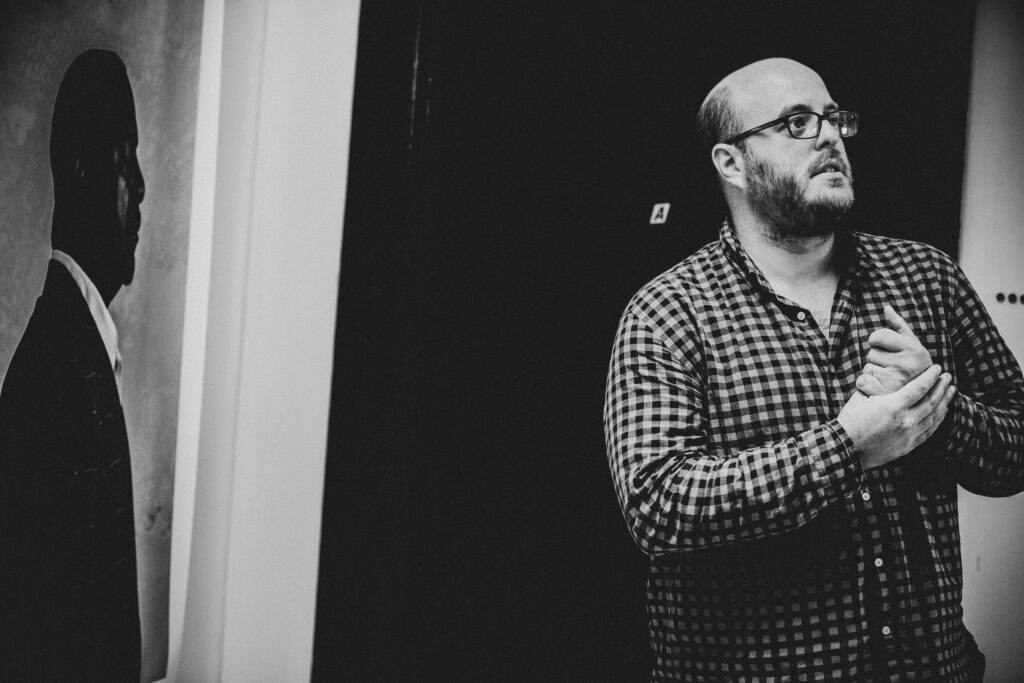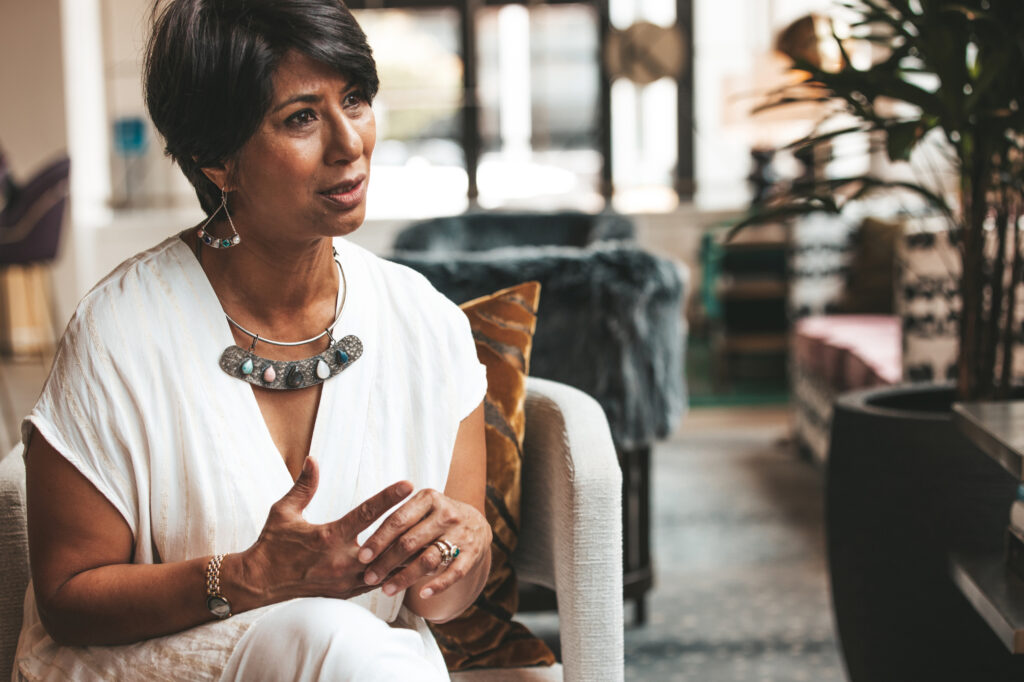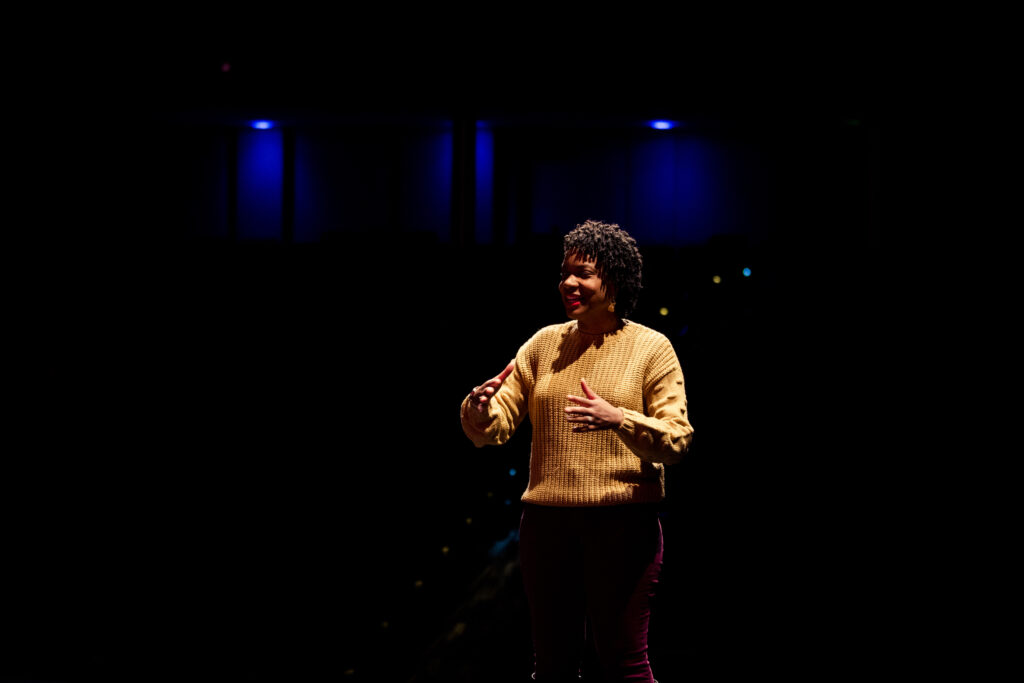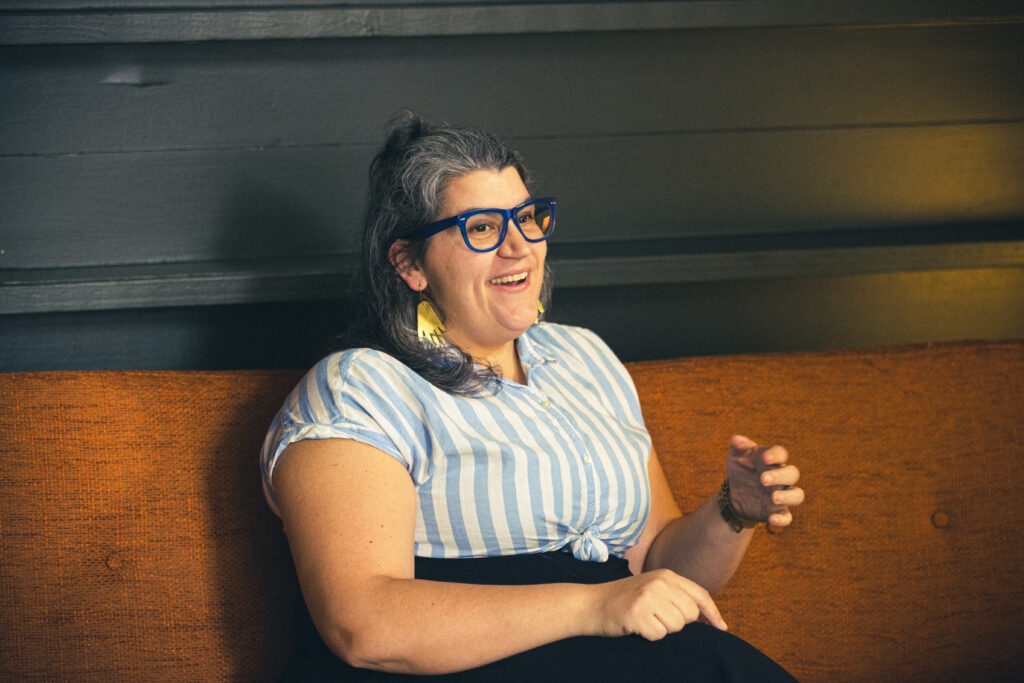“Having lived here almost all of my adult life, I’ve never seen the city so vibrant and alive with music and it’s a really special thing to watch take root…. It’s a pretty amazing time to be a music lover in the Magic City”
As the host of The Audiovore on Birmingham Mountain Radio each week, Lee Shook uses his encyclopedic knowledge of music across genres, time periods, and geographic regions to expand the palate of his listeners. He is also a DJ, a writer, a promoter, the producer of the live music video series Spectra Sonic Sound Sessions, and an all-around champion for the Birmingham music scene.
Photo Credit: Sarah Orr
Skip forward a few years, and after working in concert promotion with Southeastern Attractions and then subsequently branching out on my own, I decided it was time to kind of brand myself, and in 2010 I created The Audiovore blog as a kind of dumpsite for small articles and unpublished interviews I had done and couldn’t find homes for, which eventually morphed into a radio show after being picked up by Birmingham Mountain Radio in 2012. I hadn’t thought about radio in years, but it was a unique opportunity to kind of re-expand my palette, so I took it and eventually added a live music video series to it with the Spectra Sonic Sound Sessions in 2013, which broadened the range even further.
But the whole point has always been to kind of weave a larger historical narrative between disparate genres and artists and open up new pathways for listeners’ own further exploration. I’ve always been a student of it myself, so if I can pass that on in any way and pique people’s interest in things they might not be familiar with, that’s the most important thing and what makes it all worthwhile. Really it’s just the culmination of a lifetime of personal exploration and wanting to share it with as many people as I can. That’s the thing that really matters the most to me personally. So whether it’s afrobeat and krautrock, or hip-hop and experimental music, psychedelic music and Americana, if I can provide a little context and insight into how it’s all connected, that’s where the rubber really hits the road.
You manage to share an encyclopedic knowledge of music, whether in your writing or on your show, in a manner that is still very accessible to those of us who don’t have that same in-depth understanding of the artists or genres you are covering. How do you strike that balance?
You know, it’s kind of funny you ask that, because I’ve always been hyper-aware that some of the stuff I am presenting can be challenging for some folks– especially if they’ve never heard or read about it before– and always try and present things in a manner that’s very open and inviting and not too didactic or overly academic. Because that kind of stuff can easily turn people off. I really want it to be fun and approachable for folks– even if it’s really far out or heady music we’re listening to– and give people a chance to reach their own conclusions about whether they like it or not, or even see any value in it, historical or otherwise. Because the last thing I want to do is kind of beat people over the head with knowledge by being a brainiac about it. Which sounds kind of counterintuitive, but if you make it more approachable for folks they tend to trust you more and stay with you longer and feel much more inclined to stick around and hear what you have to say, even if it’s not stuff they were initially interested in. It’s kind of a tricky thing to pull off, and I’m not sure I always succeed in doing it, but it’s definitely the intended goal.
So whether it’s a personal story about how I got introduced to the music of Muscle Shoals and The Swampers, or a funny aside about not taking experimental music too seriously (despite its seemingly serious nature), I really do think it goes a long way in opening people up to taking the ride along with you. Which is important, because it creates a kind of camaraderie with your listener that says, “I’m not here to try and teach you anything, all I want to do is share what I’ve learned along the way.” It’s always kind of been my guiding philosophy with both writing and radio and something I strive to achieve with every show. And the same thing goes anytime I ever have guests on the program. So whether it’s having a member of the Talking Heads on, or someone from Captain Beefheart’s Magic Band, I try and keep it as warm and conversational as possible, and hopefully show the listener that I’m just as interested in learning from it as they are. It’s really important.
As the producer of the Spectra Sonic Sound Sessions, you’ve been able to highlight some iconic local musicians and venues, as well as some nationally known acts. What have some of the highlights been for you thus far? What can we look forward to on the show and in the series this year?
I’ve been very fortunate to work with a lot of amazing acts from here, as well as from around the country and world, and consider it an incredible privilege to be able to present their music in video as well as on the radio. And a lot of that is built on trust born from a genuine interest in them as both people and artists. We really strive to present our bands in a very straightforward manner that really concentrates on the music and not a lot of tricky editing and want people to feel like they’re there in the room with the band and not witnessing a stale and staged performance. I really like the idea of a raw document– and people just playing music in a space together– and always try and keep the sound they are creating at the forefront of our productions. It goes a long way in terms of overall impact and creating a kind of historical document of people, place, and time.
That being said, we also love being able to highlight all of the amazing venues and studios around town– and kind of showing off the best of Birmingham– and have always made an effort to be a conduit for community spirit around the city. So whether that’s shooting at Seasick Records, at an underground house party, or somewhere like The Club, we always want people to feel a little ownership over it and that we’re representing for as many folks in Birmingham as we can. As far as highlights go, shooting people like St. Paul & The Broken Bones at the Alabama Theatre, or The Dexateens at The Nick, or Moon Taxi at Iron City probably stick out the most, but we’re actually really proud of everything we do both big and small. So whether that’s capturing young bands like The Burning Peppermints at Magnetic Audio, or someone like the great Spaceface at Ol Elegante, or The Kernal & His New Strangers at The Syndicate Lounge, we just love being able to work with so many great artists who want to be a part of the series. We have a “no limits” approach in terms of the types of music we present, as the name suggests, and really want it to be as inclusive as possible.
As far as upcoming series, we’re really excited to be presenting a collaboration with the ASO’s Sound Edge Festival next month, which will highlight a lot of unique and underrepresented sounds and textures you don’t normally hear on the radio, including performances by In Snow, The Green Seed, Davey Williams, and Daniel Farris and Jim Fahy, which we shot over at Communicating Vessels as part of the “Waves of Woodlawn” street party last weekend. Definitely excited about that one. And then after that we’ll be presenting a very special performance by the legendary Col. Bruce Hampton at Wayne-O-Rama up in Chattanooga in conjunction with the Shaking Ray Levi Society. Bruce is one of my favorite people in the world and getting to work with someone like Wayne White is an incredible honor, so that will definitely be another highlight for sure. Really looking forward to sharing those with Birmingham. We also have our very first official vinyl release coming out this year with Null and \\GT// as part of a special Record Store Day collaboration with Seasick Records and Communicating Vessels, so that should be a treat as well.
How would you describe what makes Birmingham’s music scene unique to someone who is not familiar with it? Are there any artists, venues, or events that you find particularly compelling at the moment?
I’ve actually written and talked about this a lot, but one of the things that really stand out to me about the Birmingham music scene is the sense of community. Which really is kind of special. Being a largely second-tier music market in comparison to places like Atlanta, Nashville, or New Orleans, Birmingham has had to kind of prove itself to the world at large, and one of the unintended consequences of that is that people tend to have a kind of tribal “us vs. them” attitude that engenders a lot of collaboration and generational and musical crossover. People really want the city to shine– which obviously extends well beyond the music scene– and when you’re fighting for the home team and broader cultural relevance, a lot of the normal competitive attitudes you find in bigger cities tend to dissipate or disappear altogether to help push the collective forward. Of course, that’s not always the case– and there will always be isolated examples of normal human sniping and egos and in-fighting– but on the whole, Birmingham is far more community-minded than a lot of other towns. Which is really beautiful thing when you see it in action and Birmingham Mountain Radio has definitely allowed me to see a lot of that from the inside out. And it really makes me proud of our city.
As far as some of the more compelling elements that make up the scene right now go, definitely having new venues like The Lyric, Iron City, and Saturn have raised the bar in terms of overall concert experiences go. Couple that with awesome smaller DIY venues like The Syndicate Lounge and The Firehouse, and it definitely keeps the underground music scene rife with great places to play and see up-and-coming bands before they get big. I mean, the fact that we have cool live music programs like Subcarrier on APT, incredible new festivals like Sloss Fest and Secret Stages, and awesome record labels like Communicating Vessels and Step Pepper Records providing platforms for really great music of all stripes to take shape really means a lot to the community at large. Having lived here almost all of my adult life, I’ve never seen the city so vibrant and alive with music and it’s a really special thing to watch take root. And when you have bands like St. Paul & The Broken Bones, Banditos, and even smaller acts like Nerves Baddington and Wray making waves around the city and state– and ultimately country and world– it’s a pretty amazing time to be a music lover in the Magic City.
What aspects of music scenes in other similarly sized markets would you like to see more of in Birmingham? What would you recommend we do in Birmingham to help the music community continue to grow?
One of the great things about Birmingham is that there is so much room for growth. Whereas places like Atlanta and Nashville are almost over-saturated with talent and places to play, Birmingham still has some space to grow and develop into itself, which is awesome. Of course, we’d love to become the next Athens or Austin, but part of the charm of Birmingham is that it’s still kind of undiscovered, which means we’re kind of free to be ourselves, which has a lot of power in it when you think about all of the potential out there for maturation. Keeping it an under-recognized gem allows it room to expand on its own time– and keep it special– but we also want people to know that this is a place that supports great music and has a very diverse and dynamic scene.
Do I have any recommendations for it? No, not really, as part of the joy of watching it grow is letting it become what it’s meant to be, so a lot of that is just a combination of blind luck, good fortune, and a lot of hard work, but those are all things you just create on your own or the universe creates for you. Of course, people need to be supportive and go out and be a part of the growing community, but as far as any kind of directive, all I can say is just be yourself, support those around you, and try and be a good steward for the great things you see going on in the city so that they can carry forward into the future. It’s a simple formula, but it really does work. Just keep being awesome and the rest will follow.
